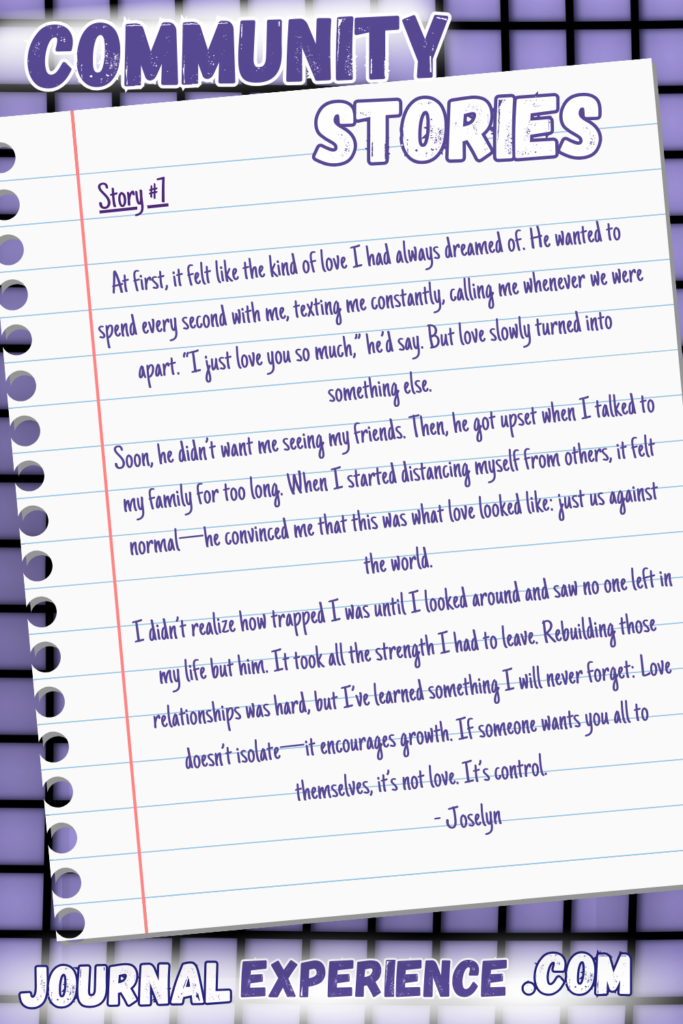Trust is the foundation of every meaningful relationship—whether it’s romantic, familial, or a close friendship. When trust is broken, it can leave lasting emotional wounds, making it difficult to feel secure and connected with others. Rebuilding trust is not an overnight process; it requires patience, self-reflection, and open communication.

Journaling can be an invaluable tool in processing betrayal, restoring self-trust, and strengthening relationships. Writing allows you to explore your emotions, recognize patterns, and gain insight into the factors that influence trust. Through self-reflective journal prompts, you can begin to understand past trust issues, rebuild confidence, and cultivate healthier, more secure connections.
Below are 30 guided journal prompts designed to help you navigate the journey of rebuilding trust. Whether you are working through personal betrayal, learning to trust yourself again, or striving to improve communication in your relationships, these prompts will provide clarity and guidance.
Journal Prompts for Rebuilding Trust
Exploring Past Experiences with Trust
Before rebuilding trust, it’s essential to reflect on past experiences. Understanding how past betrayals have shaped your views on trust can provide valuable insight into your emotional responses and relationship patterns. Often, trust issues stem from unresolved wounds, whether from childhood, past relationships, or friendships. By acknowledging these experiences, you can begin to differentiate between past pain and present reality, helping to prevent old wounds from dictating new relationships. Recognizing patterns in how you trust—or struggle to trust—can be a key step in breaking unhealthy cycles and fostering deeper connections with others.
Journal Prompts:
- Describe a time when someone betrayed your trust. How did it affect your emotions and beliefs about trust?
- Have you ever broken someone’s trust? What led to that situation, and what did you learn from it?
- How do past experiences with trust influence your current relationships?
- What patterns do you notice in your relationships regarding trust?
- Have you ever felt hesitant to trust someone even when they gave you no reason to doubt them? Why?
- What fears or insecurities arise when you think about trusting others again?
Deep Dive: Identifying past betrayals and trust issues is the first step toward healing. Take your time with these prompts, and be honest with yourself. Journaling is a safe space to explore these feelings without judgment.

Self-Reflection for Rebuilding Trust in Relationships
Rebuilding trust starts from within. By acknowledging your personal trust issues and understanding how they impact your emotions, you can begin to create healthier relationships. Many times, trust issues stem from a deep-rooted fear of vulnerability or past experiences that left emotional scars. Recognizing how your own beliefs about trust have developed over time allows you to identify any misconceptions or defense mechanisms that may be holding you back from forming meaningful relationships. Self-reflection helps you move beyond the pain of past betrayals and gain clarity on what you need to feel secure in your connections.
Journal Prompts:
- What does trust mean to you in a relationship?
- How do you typically react when someone lets you down?
- What qualities do you look for in a person to determine if they are trustworthy?
- Do you struggle with self-trust? If so, how does it manifest in your daily life?
- What emotions surface when you think about giving someone a second chance?
- How can you distinguish between someone who deserves your trust and someone who does not?
Self-Trust Exercise:
Take a moment to reflect on decisions you’ve made in the past that led to positive outcomes. Write about a time when trusting yourself resulted in a good decision.
Trust-Building Exercises Through Journaling
Trust is rebuilt through consistent actions and open communication. These writing exercises will help you develop healthy habits that foster trust and connection. Trust is not just about relying on others—it’s also about demonstrating reliability, setting boundaries, and fostering emotional security. Journaling about these themes allows you to recognize both the ways you establish trust and areas where trust may be lacking. By making small, intentional changes in your relationships, you can gradually rebuild trust and strengthen emotional connections over time.
Journal Prompts:
- Write a letter to someone who has hurt you, expressing your feelings (you don’t have to send it).
- What are three small ways you can rebuild trust in a relationship right now?
- How can you communicate your need for trust to someone in your life?
- Describe a situation where someone showed they were trustworthy. What did they do?
- What boundaries can you set to protect your sense of trust?
- How can you show up as a trustworthy person in your relationships?
Practical Exercise:
Create an affirmation statement about trust. For example: “I allow myself to trust those who have earned it, and I am patient in the process.” Repeat it daily.
Improving Communication to Strengthen Trust
Open and honest communication is key to rebuilding trust. These prompts will help you explore ways to express yourself clearly and foster deeper emotional connections. Without clear communication, misunderstandings can lead to unnecessary conflict, further eroding trust. Learning how to articulate your feelings, set expectations, and actively listen to others can significantly improve the quality of your relationships. Effective communication fosters a sense of security, allowing both you and those around you to engage in open and transparent dialogue that builds stronger trust over time.
Journal Prompts:
- What fears hold you back from having honest conversations about trust?
- How do you typically handle conflict in relationships? Does this support or hinder trust?
- How can you practice active listening to improve trust in your relationships?
- What does emotional vulnerability mean to you? How comfortable are you with being vulnerable?
- Write about a time when a conversation helped rebuild trust in a relationship.
- What communication habits do you want to improve to create stronger, more trusting connections?
Communication Tip:
Practice expressing your feelings using “I” statements. Instead of saying, “You made me feel hurt,” try, “I felt hurt when this happened.” This reduces defensiveness and encourages open dialogue.

Moving Forward: Rebuilding Self-Trust and Confidence
Trusting yourself is just as important as trusting others. Strengthening self-trust helps you make better decisions, set healthy boundaries, and cultivate secure relationships. When you struggle with self-trust, it can manifest as second-guessing decisions, feeling disconnected from your intuition, or relying on external validation. By intentionally working on self-trust, you empower yourself to make confident choices and cultivate relationships built on mutual respect and security.
Journal Prompts:
- What steps can you take to rebuild trust in yourself?
- Write about a time when you doubted yourself but later realized you were right.
- How can you practice self-compassion when trust issues arise?
- What daily habits can help you regain confidence in your intuition?
- How do you define forgiveness? What role does it play in rebuilding trust?
- What is one thing you can do today to take a step toward trusting yourself and others again?
Building Self-Trust:
Consider keeping a journal of decisions you make each day and reflecting on their outcomes. This can help reinforce confidence in your ability to trust yourself.
Overview
Rebuilding trust is a process that requires patience, self-awareness, and a commitment to growth. Journaling can serve as a powerful guide in navigating trust issues, allowing you to work through emotions, set boundaries, and develop healthier relationships. By taking small steps every day, you can restore trust in yourself and others, fostering stronger and more secure connections.

For more journaling exercises and relationship healing resources, subscribe to The Journal Experience Newsletter and continue your journey toward emotional well-being.